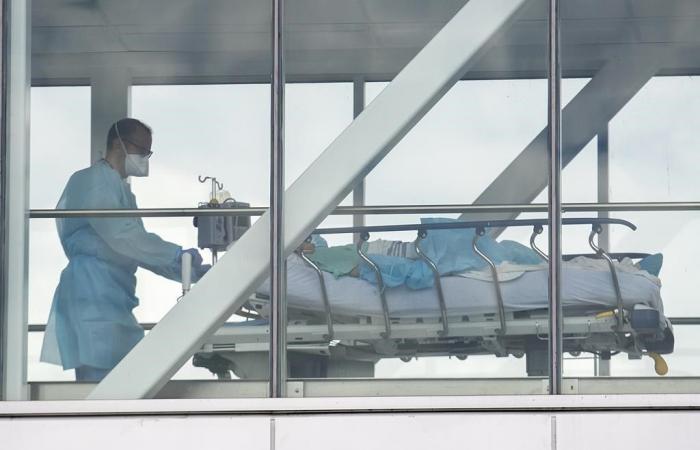Rehabilitation care, psychological monitoring and occupational therapy, which were desired by 32% of healthcare workers with long COVID, were identified as the most beneficial, especially rehabilitation services aimed at managing fatigue and activities. daily.
The INSPQ survey indicates that nearly one in two healthcare workers who contracted COVID-19 and developed the long form of the disease managed to consult a doctor. The most common symptoms of what the INSPQ calls post-COVID-19 illness are fatigue, shortness of breath, concentration or memory problems and mental fog.
Simon Décary, who was a member of the INSPQ advisory committee on this report and who chairs the steering committee for long COVID clinics at the Ministry of Health, is not surprised by the lack of access to care, even if This concerns the healthcare staff.
ALSO READ | Around 2,000 patients are on the long COVID clinic waiting list
He notes that healthcare workers appear to have better access to a doctor for long COVID than the general population. “On the population side, there are enormous difficulties in ensuring that patients [atteints de la] Long COVID have access to their family doctor regarding the management of this illness,” he says.
For the rate of access to rehabilitation services, it’s something else, he says, “12% is very low.”
“What these results tell me is that many health professionals are on the waiting list [des cliniques pour la COVID longue]», he analyzes.
Sara Carazo Perez, co-author of the report, notes a “significant gap” between the care requested by health professionals and the care received. “Especially for certain services,” she adds. There was easier access to medical care, less access to rehabilitation care, psychological support and services to improve memory.
“We drew up a portrait of what the situation was like in the summer of 2023, and we really noticed a difficulty of access,” she comments.
Ms. Carazo Perez mentions that the mission of the INSPQ was to provide a portrait of the situation to inform health authorities and provide food for thought, but the report does not answer “why” health workers suffer from long COVID. had difficulty receiving the care they requested.
“I think this is a situation that encounters all the difficulties for health services because it is a new disease that requires a lot of multidisciplinary care,” says Ms. Carazo Perez. The report also emphasizes that the situation is the same elsewhere in Canada.
According to the Canadian COVID-19 Health and Antibody Survey, less than 50% of people with long COVID say they think they received the care they needed. “This means that this is not an isolated problem in Quebec,” underlines the researcher.
Prevalence among staff
Among healthcare workers who reported having COVID-19, approximately 15% had symptoms lasting 12 weeks or more after initial infection. At the time of the survey, 6% of all healthcare workers in Quebec still had symptoms of long COVID.
“Our prevalence data is believed to be fairly representative, but probably with a small underestimate. Probably health workers have a little higher prevalence than adults of a similar age,” says Ms. Carazo Perez.
She explains that most people who currently have long COVID have been infected with the Omicron variant. “Because the number of infections was so much larger that even if the proportion was smaller, ultimately most of the people who have long COVID now were infected with Omicron,” she says.
“Caregivers are in a special situation because they were infected a lot at the start of the pandemic, much more than the general population,” points out Ms. Carazo Perez. At the start of the pandemic, the risk of long COVID for people who were infected was higher since it was the ancestral strain that was circulating and there was no vaccine yet.
A second phase of the INSPQ investigation is already underway. Healthcare workers who participated will answer the questionnaire again with the aim of seeing what the clinical evolution of their symptoms and access to care is. Mr. Décary is hopeful that access will improve thanks to the measures currently being put in place by the Ministry of Health, including training on long COVID for all front-line health professionals who deal with this customer base.






